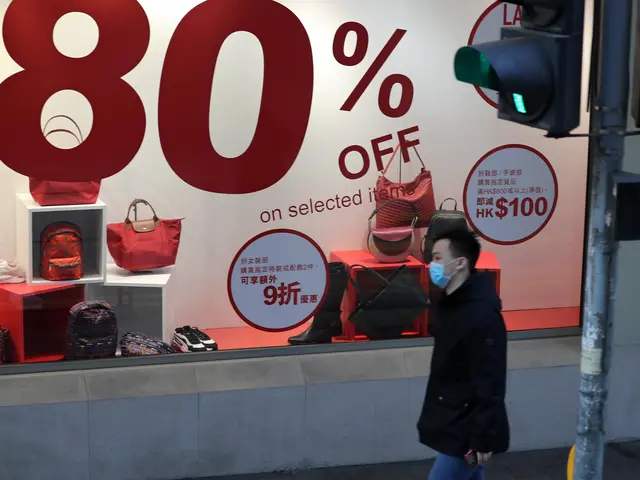China's Hong Kong Special Administrative Region (HKSAR) government has rolled out a new relief package to assist embattled businesses and residents amid the COVID-19 pandemic, bringing the total value of rounds of economic stimulus to 287.5 billion Hong Kong dollars (about 37 billion U.S. dollars).
The latest measures aimed to help cash-strapped firms pay wages of their employees and subsidize struggling workers left out in the previous reliefs have been welcomed and applauded in various sectors of Hong Kong.
Gao Yingxin, chairman of the Hong Kong Chinese Enterprises Association, said he supports the government's anti-pandemic efforts.
"The measures, focused on saving jobs and propping up industries most directly and severely affected by the outbreak, can play a very positive role in easing corporate difficulties, boosting market confidence and strengthening Hong Kong's economic strength," Gao said.
Given the unprecedented pandemic in a century and its ensuing economic impacts, the measures announced by HKSAR Chief Executive Carrie Lam are powerful and cover a wide range of sectors, showing the resolve of the government to help all walks of life weather out economic hardships, said Henry Tang, a member of the Standing Committee of the Chinese People's Political Consultative Conference National Committee and former chief secretary for Administration of the HKSAR government.
The Hong Kong economy has suffered from a double blow of social unrest last year and the COVID-19 outbreak since the beginning of 2020. From restaurants to retailers, businesses in a wide range of sectors are struggling to keep afloat, and the livelihood of residents has been seriously affected.
According to a survey of more than 4,000 people conducted by the Hong Kong Federation of Trade Unions, the tourism, catering and construction sectors were the hardest hit, with a large number of tour guides on unpaid leave and nearly 40 percent of builders having no work to do.
The overall jobless rate in Hong Kong increased to 3.7 percent, the highest level in more than nine years, in a three-month period ending February.
The government in February set up an initial 30-billion-Hong Kong dollar anti-epidemic fund to assist coronavirus-hit businesses, including 5.6 billion Hong Kong dollars for retailers, 3.73 billion Hong Kong dollars for restaurants and 3.23 billion Hong Kong dollars for transportation businesses.
However, an upsurge in the number of confirmed COVID-19 cases recently, which approached 1,000 this week, has led to more stringent social distancing enforcement to curb the spread, exacerbating the economic woes faced by numerous businesses and residents, and prompting appeals for more relief efforts.
As a key part of the latest package, the government will allocate 80 billion Hong Kong dollars to pay up to half of the wages of employees from coronavirus-hit sectors for six months, and distribute subsidies worth 21 billion Hong Kong dollars in total for sectors including aviation and tourism, and for people from minibus drivers to property agents.
Billy Mak, associate professor of the Department of Finance and Decision Sciences of the Hong Kong Baptist University, said the measures will help businesses hold up for a longer time and protect jobs so that the economy can rebound quickly after the pandemic is over.
Non-official members of the Executive Council also pointed out that the government's new policies are unprecedented and will alleviate the economic fallout of the pandemic and pave the way for the recovery of the Hong Kong economy.
As for the growing concerns about the deficit, which will likely expand to 276.6 billion Hong Kong dollars this year, Tang said, on the contrary, it is high time for Hong Kong to actively and properly use its abundant fiscal reserves to save jobs and stabilize the economy.
Financial Secretary Paul Chan has also said the HKSAR government budget remains steady as fiscal reserves are still sufficient. (1 U.S. dollar = 7.75 Hong Kong dollars)
 简体中文
简体中文










